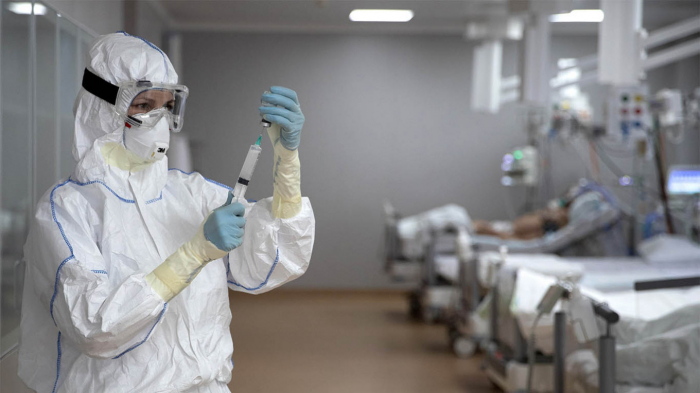For the first time in two months, new coronavirus cases fell significantly last week in the World Health Organization's Europe region with vaccines helping to save lives, but infection rates remain incredibly high, the WHO regional chief said Thursday.
WHO Regional Director for Europe Hans Kluge was speaking during an online press conference when he expressed condolences and concern about India's battle against "a horrific surge" of COVID-19 cases, which he said could happen anywhere.
"Here in the European region, it is 462 days since the first COVID-19 cases were reported," said the WHO official.
"Based on numbers of confirmed cases, 5.5% of the entire European population have now had COVID-19, while 7% have completed a full vaccination series."
Kluge said that governments in the region, which accounts for 53 countries, are gradually protecting those most at risk of severe disease and death through vaccination.
To date, some 215 million doses of vaccine have been administered in the region.
"Approximately 16% of the Europe region's population has had one dose, and 81% of health care workers in 28 countries in the region have had a single vaccine dose," said Kluge.
He added: "I think it's very important to realize that the situation in India can happen anywhere.
"When personal protective measures are being relaxed; when there are mass gatherings; when there are more contagious variants and the vaccination coverage is low, this can basically create a perfect storm in any country."
India is battling a raging second wave of coronavirus, where the entire healthcare system has been overwhelmed – shortage of medical oxygen, hospital beds and life-saving drugs – due to record infections and deaths.
In areas where vaccination rates in high-risk groups are highest, hospital admissions are decreasing and death rates are falling, he said. "Vaccines are saving lives, and they will change the course of this pandemic and eventually help end it."
Kluge said a more extensive portfolio of vaccines is needed, and vaccine hesitancy needs to be worked on without specifying any country.
"Once a certain percentage of the population is reached, then we should engage the communities much more around the lifesaving effects of the vaccine," said the WHO official.
















































